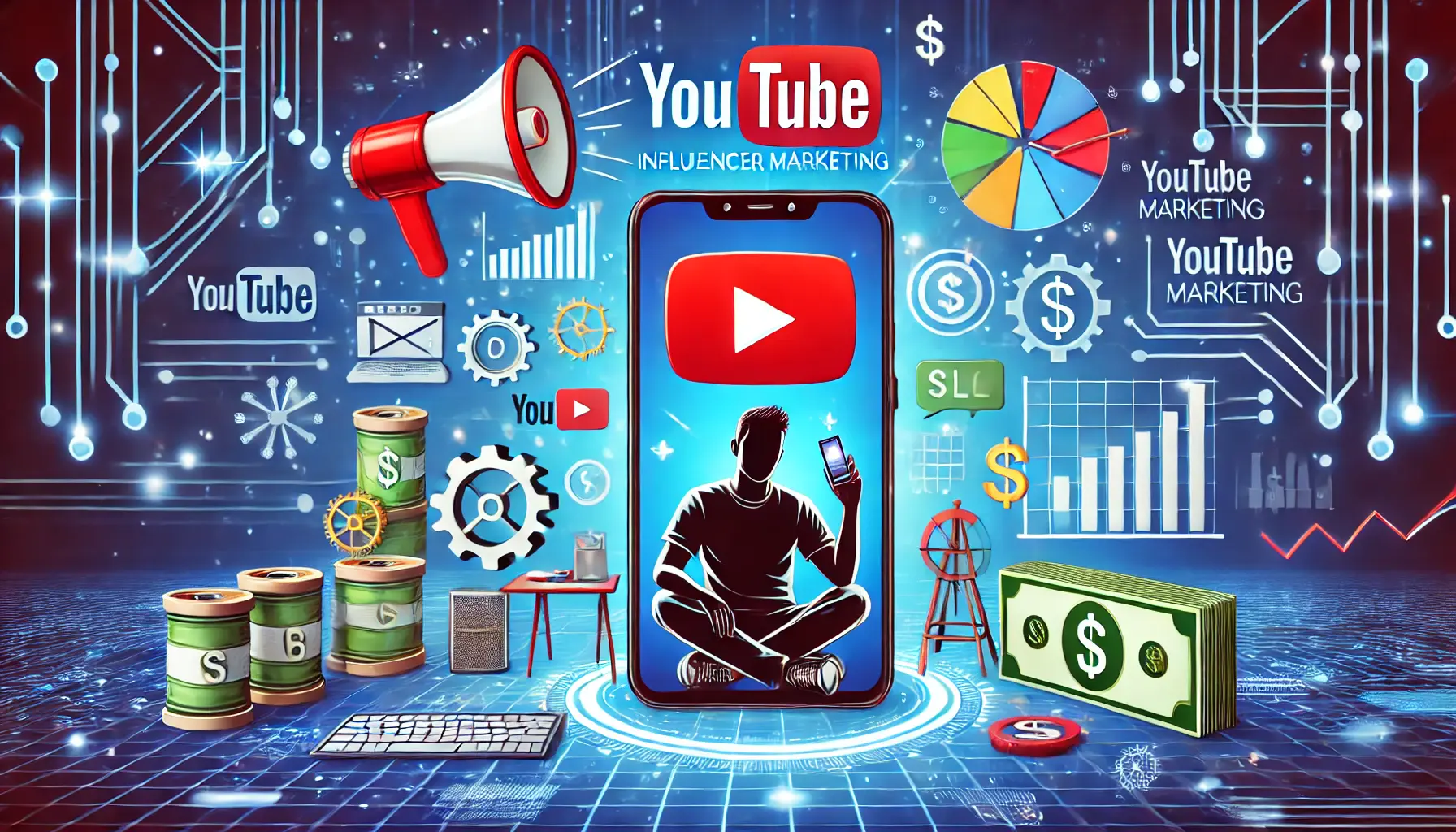The digital age has transformed how brands interact with consumers, particularly in the travel industry.
Influencer marketing, a strategy that leverages the reach and credibility of influential personalities on social media, has become a cornerstone in travel SEO.
This approach not only amplifies brand visibility but also significantly enhances engagement with potential travelers.
The synergy between influencer marketing and SEO practices in the travel sector offers a dynamic way to connect with audiences, providing them with authentic experiences and valuable travel insights.
Understanding the impact of influencer marketing on travel SEO requires a deep dive into the mechanics of digital influence and search engine algorithms.
Influencers, with their dedicated followers and content creation skills, have the unique ability to generate organic traffic, improve search rankings, and drive engagement.
By strategically integrating influencer content into SEO campaigns, travel brands can achieve a competitive edge, ensuring their offerings are visible and appealing to the right audience.
This article explores the multifaceted relationship between influencer marketing and travel SEO, offering insights into harnessing this power to boost online visibility and engagement.
- The Evolution of Influencer Marketing in Travel
- Strategies for Integrating Influencers into SEO Campaigns
- Optimizing Influencer Content for SEO
- Measuring the Success of Influencer Marketing in SEO
- Challenges and Solutions in Influencer SEO Integration
- Future Trends in Influencer Marketing and SEO
- Building Long-Term Relationships with Influencers for SEO Success
- Maximizing Travel SEO Through Influencer Marketing: A Strategic Blueprint
- Influencer Marketing in Travel SEO FAQs
The Evolution of Influencer Marketing in Travel
The Rise of Digital Influencers
The concept of influencer marketing is not new, but its adaptation to the digital world has revolutionized the way brands promote travel experiences.
Social media platforms have provided a fertile ground for influencers to share their journeys, tips, and personal recommendations with a global audience.
This shift towards digital storytelling has allowed influencers to become trusted sources of information, with the power to sway the travel decisions of their followers.
In the context of travel SEO, influencers contribute to a brand’s online presence by creating content that resonates with their audience.
Their posts, blogs, and videos not only attract attention but also encourage shares and interactions, which are positive signals to search engines.
The authentic content produced by influencers helps travel brands to connect with potential customers on a personal level, making their marketing efforts more relatable and effective.
Impact on Search Engine Rankings
Influencers have a significant impact on a travel brand’s search engine rankings.
Their ability to generate high-quality backlinks through guest posts, social media shares, and collaborations is invaluable for SEO.
These backlinks, coming from reputable and relevant sources, signal to search engines that the content is trustworthy and of high quality, thereby improving the website’s authority and rankings.
Moreover, the engaging content created by influencers tends to garner a high level of user interaction, which further boosts SEO efforts.
Search engines favor websites with high engagement rates, as it indicates that the site provides valuable content to users.
Through strategic partnerships with influencers, travel brands can enhance their SEO performance, driving more organic traffic to their site and improving their visibility in search engine results pages (SERPs).
Influencer marketing is not just about brand promotion; it’s a strategic tool that can significantly enhance a travel brand’s SEO efforts, leading to improved search rankings and increased visibility.
Strategies for Integrating Influencers into SEO Campaigns
Incorporating influencers into SEO strategies requires thoughtful planning and execution.
The goal is to leverage the influencer’s content and following to boost the brand’s search engine visibility and engagement.
Here are several effective strategies for integrating influencers into travel SEO campaigns:
Identifying the Right Influencers
Finding influencers who align with your brand’s values and audience is crucial.
Look for influencers who:
- Have a genuine interest in travel and share content relevant to your niche.
- Possess a loyal and engaged following, rather than just a large number of followers.
- Produce high-quality, original content that can enhance your brand’s online presence.
Creating SEO-Friendly Influencer Content
Collaborate with influencers to create content that is optimized for search engines:
- Encourage the use of relevant keywords in their blog posts, social media captions, and video descriptions.
- Include natural backlinks to your website within the influencer’s content to improve your site’s link profile.
- Focus on creating valuable and informative content that addresses the needs and interests of the target audience.
Leveraging Social Media for SEO
Social media platforms are powerful tools for amplifying influencer content and boosting SEO:
- Share influencer content across your brand’s social media channels to increase reach and engagement.
- Use hashtags strategically to improve the visibility of posts on social media platforms.
- Encourage interaction by engaging with comments and shares, which can drive traffic back to your website.
Measuring the Impact of Influencer Campaigns
To gauge the effectiveness of influencer collaborations on SEO, track key metrics such as:
- Website traffic originating from influencer content.
- Engagement rates on both the influencer’s and brand’s social media posts.
- Improvements in search engine rankings for targeted keywords.
It’s essential to maintain open communication with influencers throughout the campaign to ensure that the content remains aligned with SEO goals and brand messaging.
Optimizing Influencer Content for SEO
Optimizing influencer content for SEO is a critical step in ensuring that the collaboration benefits both the influencer’s visibility and the brand’s search engine rankings.
This process involves several key tactics designed to make the content more discoverable and appealing to search engines and users alike.
Keyword Optimization in Influencer Content
Integrating relevant keywords into influencer content is essential for SEO success.
This includes:
- Conducting thorough keyword research to identify terms and phrases that potential travelers are searching for.
- Ensuring that influencers naturally incorporate these keywords into their blog posts, social media updates, and video content.
- Optimizing image alt texts and video transcripts with keywords to enhance visibility in image and video search results.
Enhancing Content Quality and Relevance
Quality and relevance are paramount in influencer content for SEO:
- Encourage influencers to create in-depth content that provides real value to the audience, such as detailed travel guides, tips, and reviews.
- Content should be engaging, informative, and tailored to the interests of the target audience to encourage shares and backlinks.
- Regularly update and refresh content to keep it relevant and improve its longevity in search rankings.
Utilizing Multimedia Elements
Incorporating multimedia elements can significantly enhance the SEO value of influencer content:
- Encourage the use of high-quality images, videos, and infographics to make posts more engaging and shareable.
- Optimize multimedia elements with descriptive file names and alt attributes containing relevant keywords.
- Embedding videos from YouTube or other platforms can increase the time visitors spend on your site, a positive signal to search engines.
Building Internal and External Links
Strategic linking is a crucial aspect of optimizing influencer content for SEO:
- Influencers should include internal links to related content on your website to help search engines discover and index these pages.
- Acquiring external links from the influencer’s website or social media platforms to your site can boost your domain authority and search rankings.
- Use a mix of anchor texts that are natural and relevant to the linked content to avoid over-optimization penalties.
By focusing on these optimization strategies, travel brands can maximize the SEO benefits of their influencer marketing campaigns, driving more targeted traffic and improving their online visibility.
Measuring the Success of Influencer Marketing in SEO
To truly understand the impact of influencer marketing on travel SEO, brands must employ a comprehensive approach to measurement and analytics.
This involves tracking a variety of metrics that reflect both the direct and indirect effects of influencer collaborations on search engine performance and website traffic.
Tracking Website Traffic and Referrals
One of the most straightforward methods to gauge the success of influencer marketing efforts is by monitoring website traffic and referral sources:
- Use analytics tools like Google Analytics to track the volume of traffic coming to your site from influencer content.
- Analyze referral traffic to identify which influencers and content pieces are driving the most visitors to your website.
- Monitor traffic patterns and spikes in relation to influencer campaign launches to assess immediate impact.
Evaluating Engagement and Conversion Rates
Beyond mere traffic, the quality of engagement and conversion rates are critical indicators of influencer marketing effectiveness:
- Assess engagement metrics such as time on site, pages per session, and bounce rate for traffic originating from influencer content.
- Track conversion rates for specific actions, such as newsletter sign-ups, bookings, or inquiries, that can be attributed to influencer campaigns.
- Compare these metrics against other traffic sources to determine the relative value of influencer-driven visitors.
SEO Performance and Keyword Rankings
Influencer marketing can also have a significant impact on SEO performance and keyword rankings:
- Monitor changes in search engine rankings for targeted keywords before and after influencer campaigns.
- Analyze the visibility of influencer content in search results, especially for long-tail keywords and specific travel queries.
- Use SEO tools to track improvements in domain authority and backlink profiles as a result of influencer collaborations.
Social Media Metrics and Shareability
Since much of influencer marketing occurs on social media platforms, tracking social metrics is essential:
- Measure the reach, shares, likes, and comments on influencer posts to gauge audience engagement.
- Track the spread of influencer content across social networks and its ability to generate discussion and shares.
- Analyze the use of branded hashtags and mentions to assess brand visibility and awareness on social media.
The success of influencer marketing in travel SEO is multifaceted, encompassing direct traffic and engagement benefits as well as broader improvements in search visibility and brand awareness. By measuring these aspects comprehensively, brands can optimize their strategies for maximum impact.
Challenges and Solutions in Influencer SEO Integration
While the integration of influencer marketing with SEO strategies offers numerous benefits for travel brands, it also presents unique challenges.
Addressing these challenges effectively is crucial for maximizing the impact of influencer collaborations on search engine optimization efforts.
Ensuring Content Authenticity and Relevance
One of the primary challenges is maintaining the authenticity and relevance of influencer content.
Influencers are valued for their genuine voice and personal connection with their audience.
However, overly promotional or irrelevant content can diminish this value and negatively affect engagement rates.
- To overcome this, brands should work closely with influencers to develop content that aligns with both the brand’s goals and the influencer’s style and audience interests.
- Providing influencers with creative freedom while guiding them on key messages and SEO objectives can result in content that is both authentic and optimized.
Tracking and Attributing SEO Success
Another challenge is accurately tracking and attributing the impact of influencer marketing on SEO outcomes.
The indirect nature of some SEO benefits, such as brand awareness and authority building, can make measurement difficult.
- Implementing advanced tracking setups, such as UTM parameters for links shared by influencers, can help in accurately measuring traffic and conversions.
- SEO tools that track rankings, backlinks, and domain authority changes can provide insights into the broader SEO impact of influencer campaigns.
Aligning Influencer Content with SEO Best Practices
Ensuring that influencer content adheres to SEO best practices is crucial for maximizing its search visibility.
However, influencers may not always be familiar with these practices.
- Providing influencers with SEO guidelines and training can help them understand how to optimize their content for search engines without compromising their natural style.
- Regularly reviewing influencer content before publication to ensure it meets SEO standards can prevent potential issues and enhance its effectiveness.
Maintaining Long-Term SEO Value
Influencer content can drive immediate traffic and engagement, but maintaining its SEO value over time is a challenge.
- Encouraging influencers to create evergreen content that remains relevant and valuable to users can ensure it continues to attract traffic and backlinks long after its initial publication.
- Updating and repurposing successful influencer content can also extend its lifespan and SEO benefits.
Neglecting the challenges of integrating influencer marketing with SEO can undermine the effectiveness of both strategies. By addressing these challenges proactively, travel brands can enhance their online visibility and achieve sustainable SEO success.
Future Trends in Influencer Marketing and SEO
The landscape of influencer marketing and SEO is constantly evolving, driven by changes in consumer behavior, technological advancements, and search engine algorithms.
As travel brands look to the future, several key trends are likely to shape the integration of influencer marketing with SEO strategies.
Increased Emphasis on Micro and Nano-Influencers
Micro andnano-influencers, with their highly engaged and niche audiences, are set to play a more significant role in travel SEO.
These influencers often boast higher engagement rates compared to their mega-influencer counterparts, making their content more likely to generate meaningful interactions and backlinks.
- Brands are expected to collaborate more frequently with micro and nano-influencers, leveraging their authenticity and targeted reach to improve SEO performance.
- This shift will require brands to develop more personalized and scalable influencer management strategies to tap into the potential of these smaller, yet influential, creators.
Integration of AI and Machine Learning in Content Optimization
Artificial intelligence (AI) and machine learning technologies are becoming increasingly sophisticated, offering new ways to optimize influencer content for search engines.
- AI-powered tools can help identify optimal keywords, predict content performance, and provide insights on improving search rankings.
- Influencers and brands can leverage these technologies to create content that not only resonates with audiences but also aligns closely with search engine requirements.
Focus on Video Content and SEO
Video content is gaining prominence in both influencer marketing and SEO.
Platforms like YouTube, Instagram, and TikTok offer vast opportunities for travel brands to engage audiences through dynamic and visually compelling content.
- Search engines are increasingly prioritizing video content in their results, making it essential for influencers and brands to incorporate video into their SEO strategies.
- Optimizing video titles, descriptions, and tags with relevant keywords, as well as creating engaging and informative video content, will be crucial for improving search visibility.
Greater Focus on Local SEO and Influencer Collaborations
As travelers seek more personalized and local experiences, local SEO and influencer collaborations will become more important.
Influencers with a strong presence in specific regions can help travel brands improve their visibility in local search results.
- Collaborating with local influencers to create content that highlights unique travel experiences, attractions, and accommodations can boost local search rankings and attract a more targeted audience.
- Encouraging influencers to include local keywords and geotags in their content will further enhance its relevance for local SEO.
Staying ahead of these trends will require travel brands and influencers to be adaptable, innovative, and strategic in their approach to content creation and optimization. By embracing these future directions, they can ensure their influencer marketing and SEO efforts remain effective and competitive in the evolving digital landscape.
Building Long-Term Relationships with Influencers for SEO Success
For travel brands, the key to leveraging influencer marketing effectively in SEO strategies lies not just in one-off campaigns but in building long-term relationships with influencers.
These sustained partnerships can lead to continuous SEO benefits, including consistent backlink generation, ongoing audience engagement, and improved brand visibility over time.
Cultivating Mutual Trust and Value
Long-term relationships with influencers are built on a foundation of mutual trust and value.
Brands should recognize the influencer’s creative autonomy and influence, providing them with the freedom to create authentic content that resonates with their audience.
Simultaneously, influencers should understand the brand’s goals and values, ensuring their content aligns with these objectives.
- Regular communication and feedback between brands and influencers help refine strategies and content for better SEO outcomes.
- Providing influencers with exclusive insights, products, or experiences can enhance the content’s uniqueness and appeal, benefiting both parties.
Strategic Content Collaboration
Engaging in strategic content collaboration is crucial for maximizing the SEO benefits of long-term influencer partnerships.
This involves planning content that not only serves immediate marketing goals but also contributes to the brand’s long-term SEO strategy.
- Collaborate on a mix of evergreen content and timely, trend-based content to maintain audience interest and search relevance.
- Incorporate a variety of content formats, including blog posts, videos, and social media stories, to target different search intents and platforms.
Leveraging Influencer Expertise for SEO Insights
Influencers, with their close connection to the audience and content creation expertise, can provide valuable insights that inform SEO strategies.
Their firsthand experience with audience preferences and content performance can guide keyword selection, content topics, and engagement strategies.
- Utilize influencer feedback to identify high-performing content types and topics that can inform broader SEO content strategies.
- Explore new keywords and content ideas based on influencer-audience interactions to tap into emerging trends and search queries.
Measuring and Adapting Strategies
Effective long-term influencer partnerships rely on continuous measurement and adaptation of strategies.
By closely monitoring the SEO impact of influencer content, brands can make informed decisions to optimize future collaborations.
- Track key SEO metrics, such as organic traffic, keyword rankings, and backlink growth, to assess the effectiveness of influencer collaborations.
- Adapt content and SEO strategies based on performance data, audience feedback, and evolving search engine algorithms to ensure ongoing relevance and impact.
Sustained influencer relationships offer travel brands a powerful tool for enhancing their SEO efforts. By focusing on mutual value, strategic collaboration, and continuous optimization, brands can achieve long-term SEO success and build a strong online presence in the competitive travel industry.
Maximizing Travel SEO Through Influencer Marketing: A Strategic Blueprint
In the ever-evolving landscape of digital marketing, the fusion of influencer marketing and travel SEO has emerged as a potent strategy for brands aiming to enhance their online visibility and engage with a broader audience.
This comprehensive exploration has underscored the multifaceted relationship between influencers and SEO, revealing how strategic collaborations can significantly boost a brand’s search engine rankings and online presence.
The Synergy Between Influencers and SEO
The collaboration between travel brands and influencers is not just about leveraging the latter’s extensive reach; it’s about creating a symbiotic relationship that benefits both parties.
Influencers bring authenticity, engaging content, and a loyal following, which, when combined with SEO best practices, can lead to improved search rankings, increased website traffic, and higher engagement rates.
This synergy not only enhances brand visibility but also fosters trust and credibility among potential travelers.
Strategies for Long-Term Success
For travel brands looking to capitalize on this dynamic, developing long-term relationships with influencers is key.
Such partnerships allow for the continuous generation of high-quality, SEO-optimized content that resonates with target audiences.
By focusing on mutual trust, strategic content collaboration, and leveraging influencer expertise, brands can ensure their SEO efforts are both effective and sustainable.
Moreover, adapting strategies based on performance metrics and audience feedback is crucial for staying ahead in the competitive travel industry.
- Identify and collaborate with influencers who share your brand’s values and have a genuine connection with their audience.
- Optimize influencer content with relevant keywords, high-quality backlinks, and multimedia elements to enhance SEO performance.
- Measure the impact of influencer campaigns on SEO through advanced analytics, adjusting strategies as needed to maximize results.
In conclusion, integrating influencer marketing into travel SEO strategies offers a powerful avenue for brands to expand their reach, connect with audiences on a deeper level, and achieve their digital marketing objectives.
As the digital landscape continues to shift, staying attuned to emerging trends and adapting strategies accordingly will be essential for brands aiming to thrive in the competitive travel sector.
By embracing the principles outlined in this blueprint, travel brands can navigate the complexities of influencer marketing and SEO, paving the way for long-term success and growth.
Want your website to top Google search rankings? Leave the SEO to our professional agency!
Influencer Marketing in Travel SEO FAQs
Explore commonly asked questions about integrating influencer marketing into travel SEO strategies.
Travel influencers engage audiences by sharing their travel experiences, tips, and recommendations across digital platforms, enhancing brand visibility and engagement.
Influencer marketing boosts SEO by generating quality backlinks, increasing content reach and engagement, and enhancing brand authority and trust.
Yes, influencer content can improve search rankings by providing relevant, high-quality content that attracts backlinks and drives user engagement.
An effective collaboration involves aligning with influencers who share the brand’s values and can authentically engage their audience with relevant content.
Measure impact by tracking website traffic, referral sources, engagement metrics, and changes in search engine rankings attributable to influencer campaigns.
Challenges include maintaining content authenticity, accurately measuring SEO impact, and ensuring influencer content adheres to SEO best practices.
Yes, micro-influencers can be highly effective for travel SEO due to their engaged audiences and niche focus, often leading to higher conversion rates.
Future trends include a greater emphasis on video content, AI-driven content optimization, and increased focus on micro and nano-influencers for targeted engagement.












